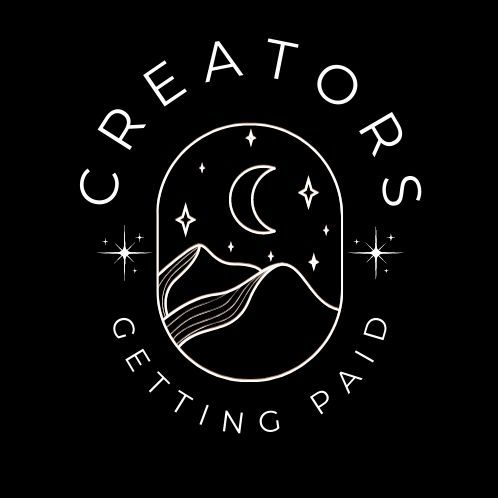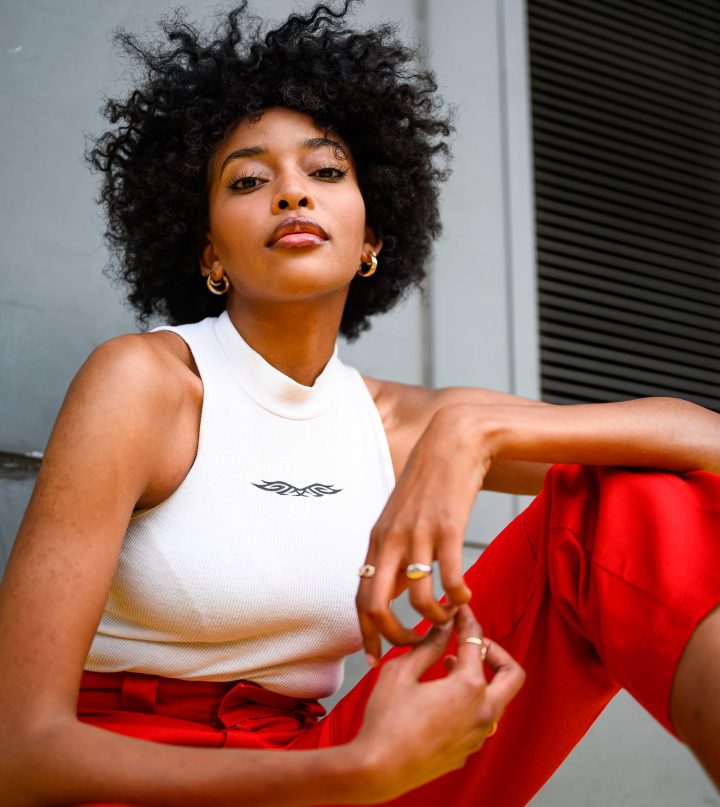It is sometime during the late summer of 2012 when I decide to start blogging. Being the overachiever that I am, I decided to start two very different websites-one about personal finance and one about Colorado. At the time I had no interest in monetizing these projects. In fact, that was the furthest thought from my mind. My goal was just to share my story and to geek out about my state. I soon discovered that I really enjoyed being a blogger and continue to create content in 2021, 9 years after I started. For those of you wondering if blogging is dead I’m going to share why it isn’t, the importance of creating a digital home for your brand and what to consider as you build out your brand.
*In order for me to support my blogging activities, I may receive monetary compensation or other types of remuneration for my endorsement, recommendation, testimonial and/or link to any products or services from this blog. Please read my disclosure and privacy policy here.*
Thinking about starting your brand website?
It’s pretty simple to do and cheap! Start with Siteground and WordPress.org. With this winning combination you’ll own your own website by the end of the day. Siteground has easy to follow tutorials to help you with setting up your site. Create a website that you own. I recommend using Siteground to host a WordPress.org (self-hosted) website where you can own your own content and design your online brand. They even have tutorials on how to set up your website. Be clear about the products and services that you’re selling. I recommend using Canva to create marketing materials that “wow!” Thinkific is the platform that I use to create my tools and courses.
Resource
Grab my “Do It Ugly” toolkit today. Perfect always gets in the way of done. If you’re looking to get started on your blog, podcast or other digital components of your business grab this kit.
Related Posts
Qube Money
When I first started my business, my finances were a mess. I was paying off debt and just trying to hustle until my business grew. I tried everything to keep my finances in order ranging from using online money management platforms, spreadsheets and the envelope system. This year I discovered Qube Money which is a digital envelope system paired with a debit card. You deposit your money into an FDIC insured account and then can spend based on dedicated Qubes that you’ve created within the app. If you’re paying for tools such as Flodesk for your emails, Thinkific to host your courses and coaching programs, or Deskpass for your coworking access, Qube keeps you organized and can be one of your dedicated business accounts. I’m a proud affiliate of Qube Money, check out the link that I share in the show notes.
Blogging Isn’t Dead
But the verb “blogging” definitely is outdated. I no longer refer to what I do as blogging and I think that the term doesn’t fully capture what online content creators currently do. In 2021, content creators who are building out a brand typically are showing up in more than one place. I now refer to what I used to call my blog in 2012 as my brand website in 2021.
We have podcasts, vlogs, robust social media followings and even nurture and grow targeted communities where we share our expertise. What many brand builders need to consider is what platforms are they building their brand on and do they actually own it or have the rights to their content?
Having your own website creates the ONE SPACE that you own that can grow your personal brand. When you look at The Brand Building Lab and my other niche websites you’ll notice the following:
- Podcast content-I own it and pay for the hosting. I also share my podcast show notes on my website.
- Written content-On all of my websites I share long-form evergreen and of the moment content.
- Products-Those websites host my products, goods and services
- The cultivation of brand identity and awareness
- Media mentions are highlighted
Build a Defined Brand Identity (on your terms)
Basically, your website allows you to put your best foot forward. It doesn’t have to be too elaborate but if you’re serious about building a brand it needs a long-term home that you own. And to give you more insight into this I’m to share the other platforms that creators are leveraging and what to consider.
YouTube-It’s a massive video search engine. With 31 million+ creators on the space. If YouTube disappeared so would your content.
TikTok-Again a massive video platform that has had numerous complaints from POC creators, in particular Black creators, who feel that their content isn’t being shared. Given that there is an algorithm for content and algorithms are designed by humans, bias can impact if your content is seen.
Facebook-Personally, I no longer use Facebook that often for business purposes beyond understanding and strategizing around the Facebook Pixel. Facebook is problematic though to create communities on because ultimately Facebook’s internal algorithms can affect what content is shown to your community. So, it’s not uncommon for Facebook group administrators (founders) to be pissed off because no one sees their announcements, recent posts, etc.
Twitter-I love Twitter. I find it to be hilarious. But, if a President can get kicked off for violating community rules you can too. Now, most of us aren’t trying to overthrow the government. But, social media platforms can make the ultimate decision around who can use their platform.
Apps-Depending on the app, you may not necessarily own the rights to the content that you’re releasing. If you’re a podcaster or obsessed with audio apps such as Clubhouse-that’s something to consider. Or, if you’re using an app such as Anchor it’s important to understand the terms of service and how the app actually makes money on the backend.
How to Make Money With Your Content Online
If you’re serious about making money online via affiliate marketing it’s important to consider the following.
- How will your followers engage with your affiliate links outside of your email list?
- Are you allowed to share your favorite affiliates via an email list? With Amazon Affiliates that’s actually a violation of the terms of service.
- The one and done affiliate marketing mistake-What most affiliate marketers will tell you is that you have to share your favorite affiliates over and over again in order for them to convert and make money. Basically, people have to click on your affiliate link and be “cookied” in order for an affiliate sale to be attributed to you.
- Your website acts as a place to gain email subscribers on a daily basis. You can share your posts via:
- Social media
- In your social media profiles
- When you’re a guest on someone else’s platform
And if you’ve thoughtfully monetized your content and it’s clearly identified to you. You can connect with future coaching clients, generate book sales, earn money with affiliates and grow your brand.
Highlight and Share Your Media Mentions
I now have a number of media mentions that I’ve acquired throughout the years. These media mentions help to amplify my voice, create authenticity for my brand and build my position as an “authority” for the type of content that I share. It’s so important for people building an online brand to share this information with others. Shout yourself out! Especially when no one else will.
Websites STILL Make Money
How do I know this? Well there are a couple of things to consider about how websites make money.
- Ads-Whenever you land on Google, you will see ads. Smaller websites function in the same way. If you’re getting enough page views you can make the decision to embed ads onto your site.
- Freelance content-I’ve made a significant amount of money with freelance writing. Basically, creating content for major websites. But they also need help with copywriting, graphics, etc. depending on the project and scope of work that they’re doing.
- Affiliate marketing-Create content that gets people in front of your favorite affiliates over and over again.
- As a funnel-Not enough people understand how a website functions as a part of their business funnel.
- As a resource-Basically, your website can be used as an ongoing resource. I still bookmark my favorite content and pages and go back to them when I need information. I do this with travel, money, food and inspirational content (even though I like video) and POC businesses that I would like to support.
- Attract your ideal clients-If your content is targeted enough then your website will attract your ideal clients. What’s important about this is that on your website you can be 100% clear about:
- What you charge
- The products and services that you sell
- How you help people
- Your beliefs and how they impact your business.
- Data collection-This can happen in a couple of different ways.
- Via a Facebook pixel-The pixel is a powerful and glorious thing that can be used for good or evil
- SEO-organic searches for the content that you’ve created one time.
- Email addresses-Build your list.
- By the questions that are asked by your readers. Those questions help you gain insight into what people would like to know from you.
- Analytics-Your website can help you eliminate the guesswork around who is attracted to your brand.
- Building Brand Authority via your website-This is something that a lot of people don’t know about. Basically, websites generate brand authority. The more backlinks to websites with more authority the stronger your website’s brand authority becomes. My Michelle is Money Hungry website has a pretty solid brand authority because of backlinks to:
- Business Insider
- BBVA
- PBSNewsHour
- Forbes
- Just to name a few. In addition to larger websites that other bloggers have created. This brand authority attracts people pitching sponsorships, projects, etc.
Your website works for you 24 hours a day, 7 days a week. If a social media platform shuts down, you may be screwed. Everyone got super excited about Clubhouse but their downloads declined significantly almost 5 months into being launched.
Your website is your brand’s home base. If you launch a website connected to your brand it should be a place where you’re being intentional about the information that you’re sharing, how you’re being of service, its place in your business funnel and how you plan on making money via your different revenue streams.
Buy Me a Coffee
Was this information helpful to you? Are you looking for a lowkey way to help me continue to share useful insight, tips, and more without starving? Buy Me a Coffee. I love working from my favorite coffee shop patios (especially during COVID). But coffee and running online platforms can get expensive. Your donations help me keep the digital lights on. The Brand Building Lab content is all the extra information that lives rent free in my head that I didn’t want to share on my Michelle is Money Hungry personal finance platform.


The Brand Building Lab Group Coaching Program
[…] 5 Reasons Why Blogging Isn’t Dead […]